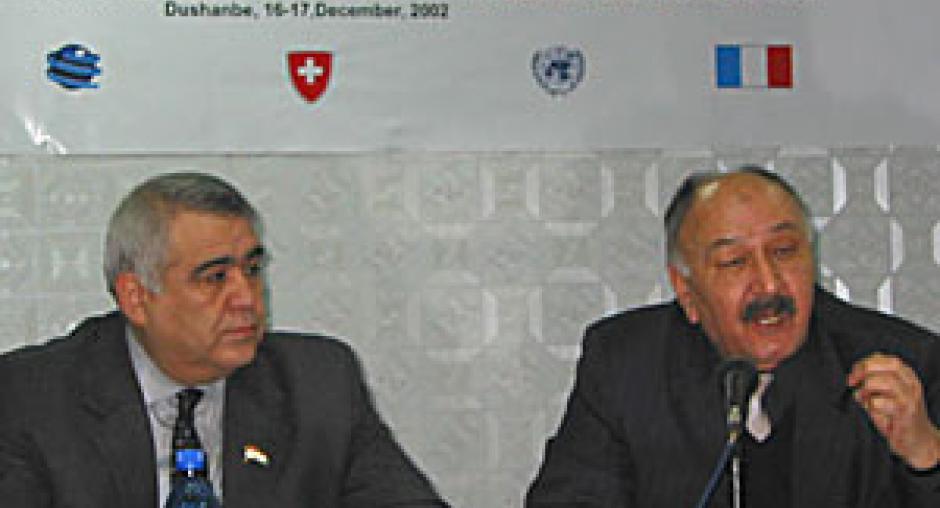OSCE conference discusses Tajik media legislation

DUSHANBE, 18 December 2002 - "We need to improve our media legislation using the experiences of European and other countries", said Ibragim Usmanov, State Adviser to the President of Tajikistan, at an OSCE-organized media conference.
Local and international experts came together in Dushanbe for the two-day conference on Means and Principles of Improving the Legislation of Tajikistan Regulating Activities of Mass Media. The working sessions aimed to explore possibilities of improving the legal situation of the media in Tajikistan, particularly regarding proposals to amend legal provisions and introduce a new media law.
Participants agreed that the working conditions for Tajik media radically differ today from those in existence when the current media legislation was adopted.
The Chairman of the National Association of Independent Media in Tajikistan (NANSMIT), Nuriddin Karshybaev, said that "Non-state media should be encouraged rather than hampered through unclear licensing processes and other limitations."
"It is high time for the legislative and executive powers of Tajikistan to start the process of amending the current legal provisions and introducing new media laws," said Ambassador Marc Gilbert, Head of the OSCE Centre in Dushanbe.
As a general conclusion the participants agreed that Tajik media legislation should be amended to comply with international media commitments and that both the government and the parliament should take advantage of legal assistance and expertise provided by the OSCE and other international bodies.
The event, which ended yesterday, was organized by the OSCE Representative on Freedom of the Media, together with NANSMIT and the OSCE Centre in Dushanbe. The Executive Office of the Tajik President, the United Nations Office of Peace-Building in Tajikistan, Internews, the Swiss Co-operation Office, the Institute of War and Peace Reporting and the French Government supported it.
Among the participants were representatives of the Tajik legislative, judiciary and executive powers, as well as international and non-governmental organizations and legal experts from Kazakhstan, Kyrgyzstan, Russia and the United Kingdom.
